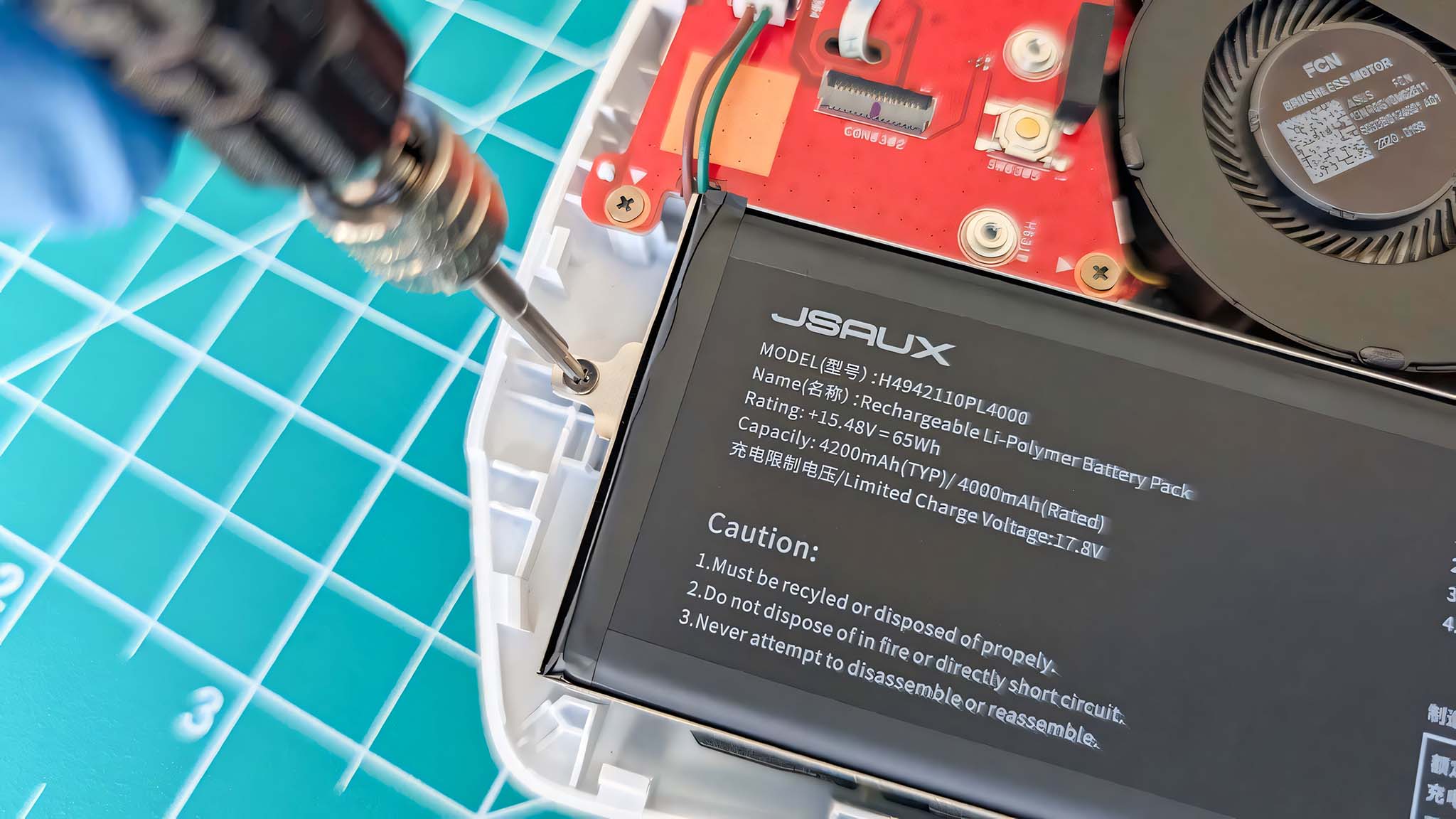LG solved Dell’s ‘invisible’ touchpad problem with this one simple trick
With the addition of some soft LED lighting LG answered the biggest complaint of Dell’s groundbreaking XPS 13 Plus laptop.
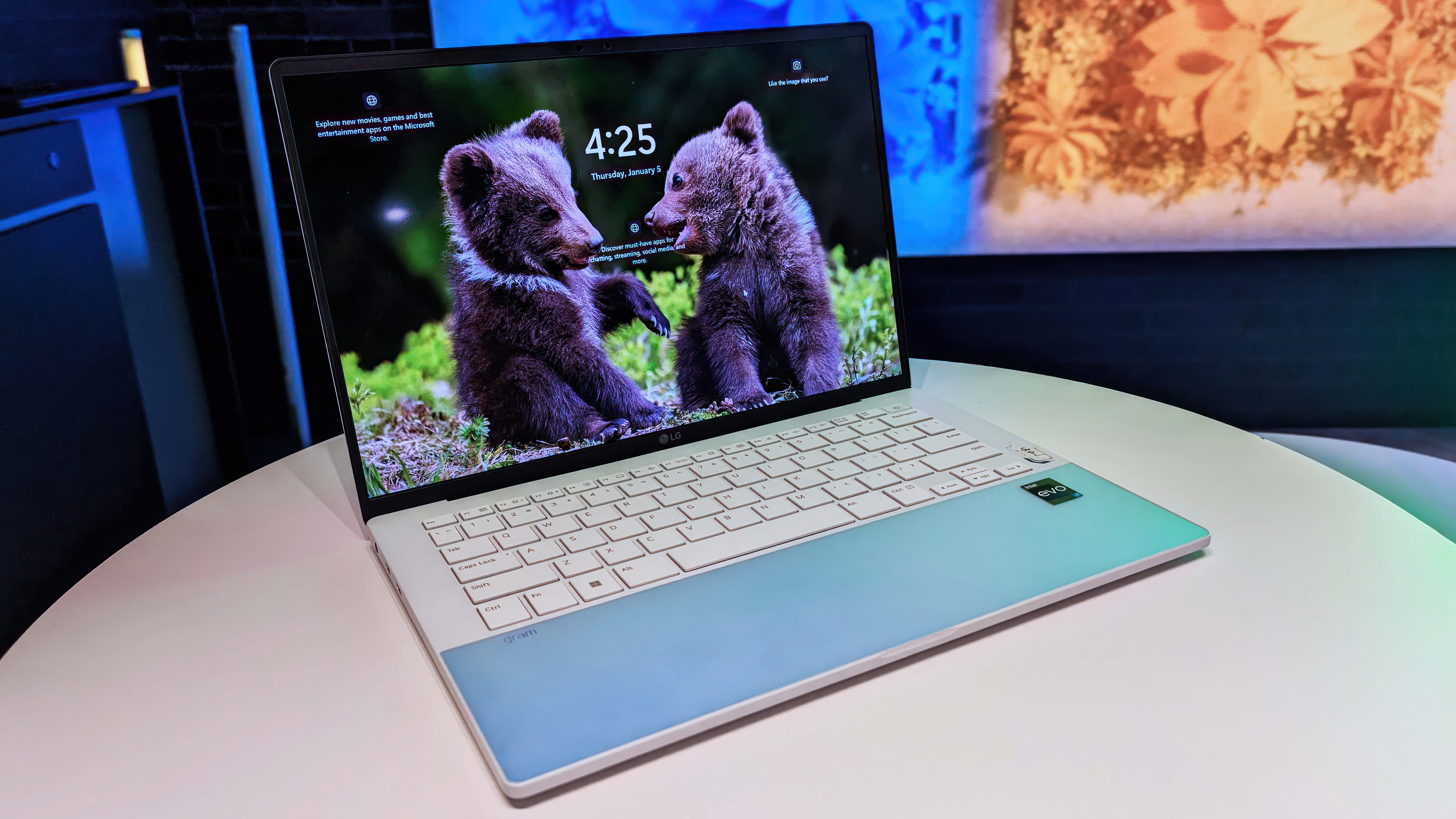
When Dell first announced the XPS 13 Plus, it is safe to say that people’s jaws were on the floor at how forward-leaning and futuristic the laptop is versus everything else. Super thin bezels, an edge-to-edge keyboard, an LED function bar, and zero-lattice keys gave the XPS 13 Plus an unquestionably unique look.
But the “invisible” haptic touchpad divided tech glitterati and potential customers. After all, how do you know where to put your fingers if you can’t see the touchpad’s borders?
Dell was able to go with this design because the touchpad isn’t physical – it doesn’t actually click. Instead, piezo sensors detect your fingers, and the touchpad vibrates, simulating touch. (Apple has done this for years on the MacBook, but the tech on laptops like the Microsoft Surface Laptop Studio is newer and much more advanced). Dell then made the entire lower keyboard deck all glass, which looks fantastic, although many questioned its usability.
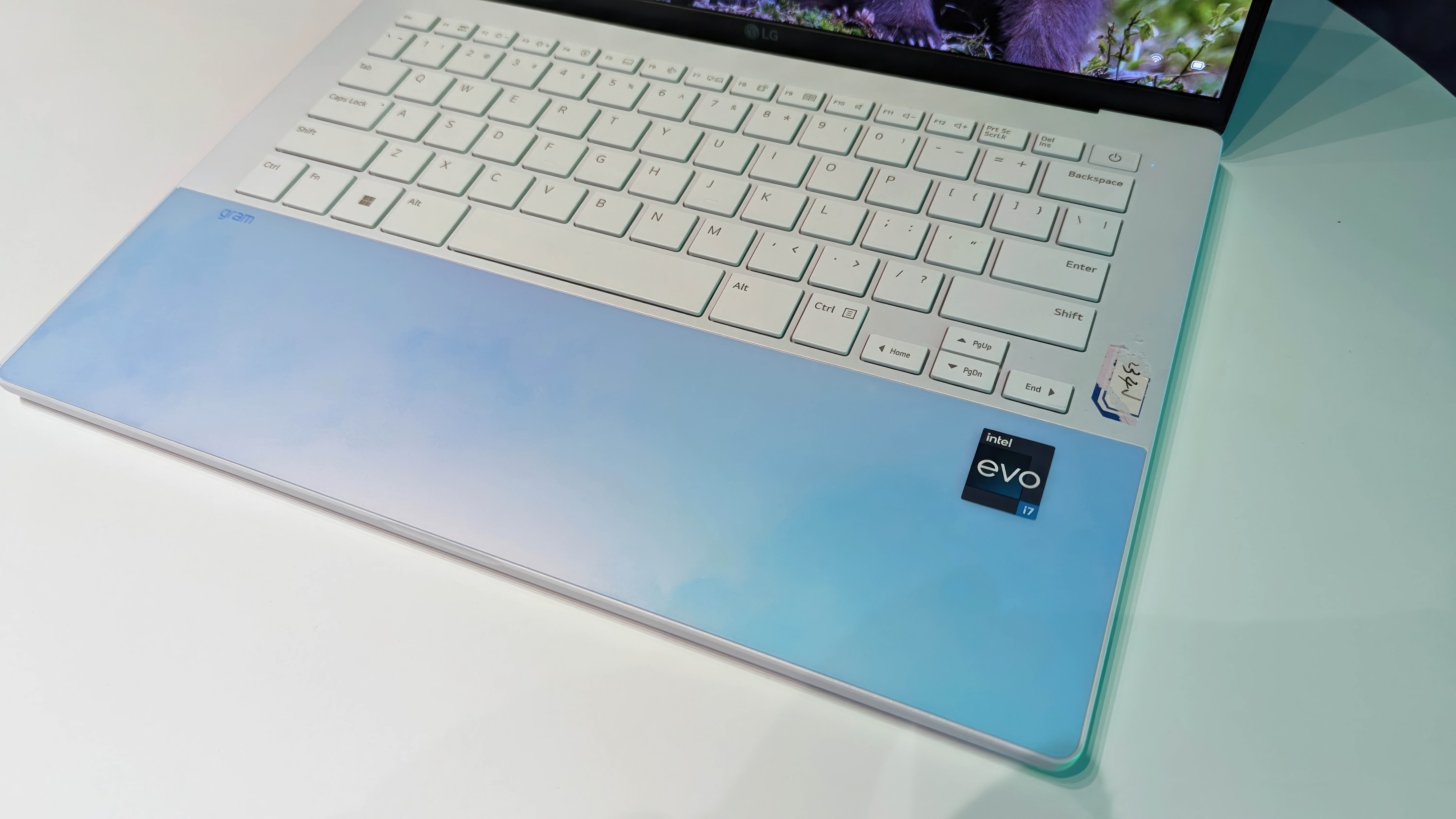
The question of usableness, in my opinion, is moot primarily as muscle memory and simple intuition make using the XPS 13 Plus’s touchpad a breeze. In addition, the touch area is big enough, and when you press down, it “moves” just like a mechanical touchpad.
Basically, could you not knock it until you try it?
All that said, it is a valid point of contention and debate in laptop design. Lenovo tells me it prototyped the same layout as Dell for its new ThinkPad Z13 and Z16 laptops, which also use haptics but ultimately opted for a more traditional design with a faux touchpad area.
Enter LG on January 4, 2023, with its new LG Gram Style 14 and 16 laptops with a simple solution to the “invisible” touchpad.
Get the Windows Central Newsletter
All the latest news, reviews, and guides for Windows and Xbox diehards.
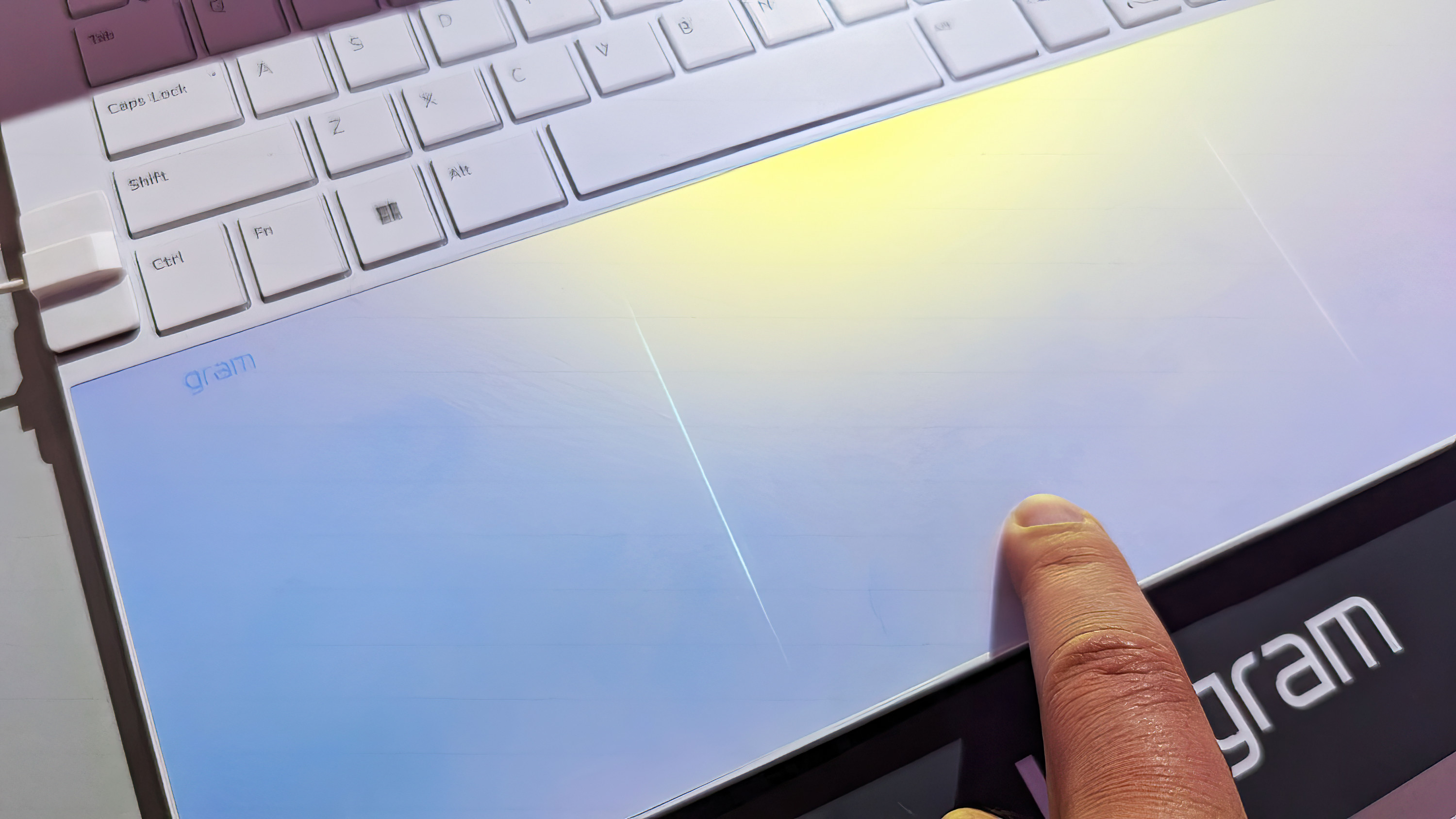
The Gram Style borrows a similar large Gorilla Glass 3 area on the keyboard deck’s lower half but opts for a beautiful iridescent material that shimmers in the light. That deck also hides, you guessed it, an unseen haptic touchpad.
But is it really hidden? Nope, because LG has a trick up its sleeve.
LG decided to add two very soft LED lines of light on each side of the touchpad that appear only when you touch the touchpad area. The lights quickly fade, which is ideal for reducing any residual power consumption.
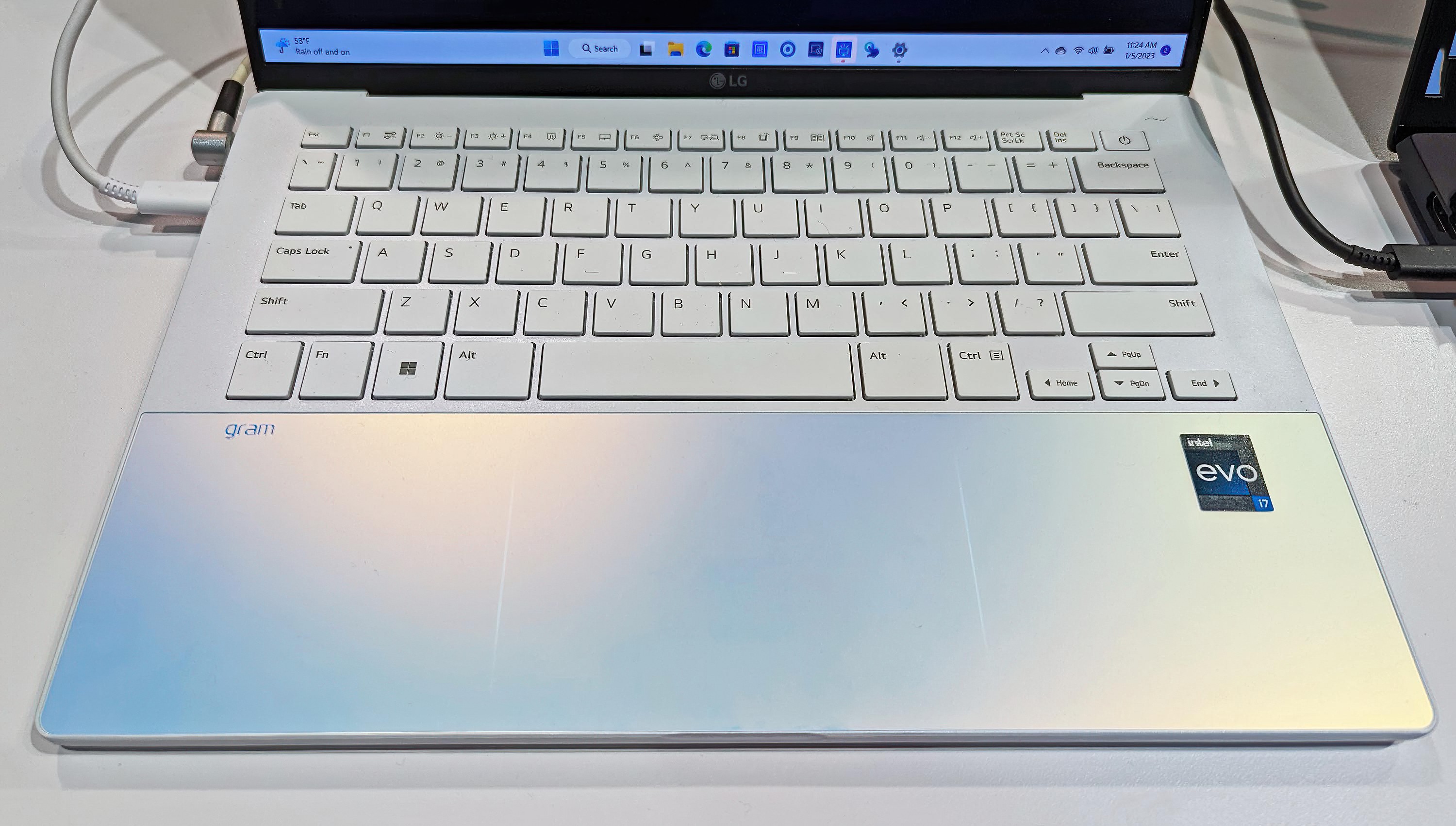
LG’s solution here is simple and simply brilliant. Each time you use the touchpad, you’ll visually get a quick reminder of where the touchpad’s edges begin and end. (I’m assuming you can probably disable it as well, or maybe even leave them on all the time, but I have not yet confirmed that.)
None of this is groundbreaking per se, but as haptics become more critical to the PC and laptop space, it’s great to see these clever and minimal solutions to new problems. The great thing about LG’s answer is that it is not only functional but also ticks the box for looking cool and futuristic.

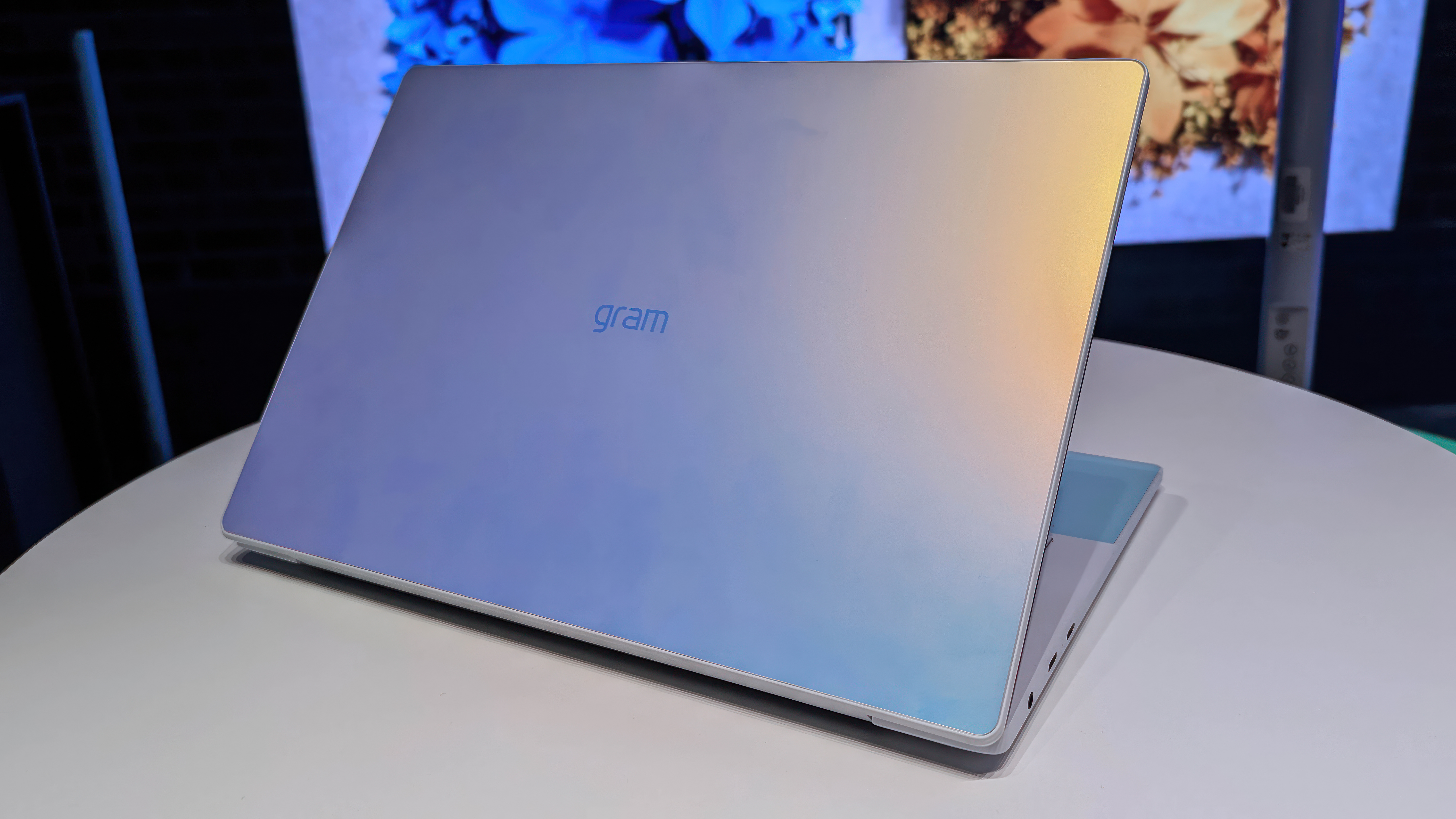
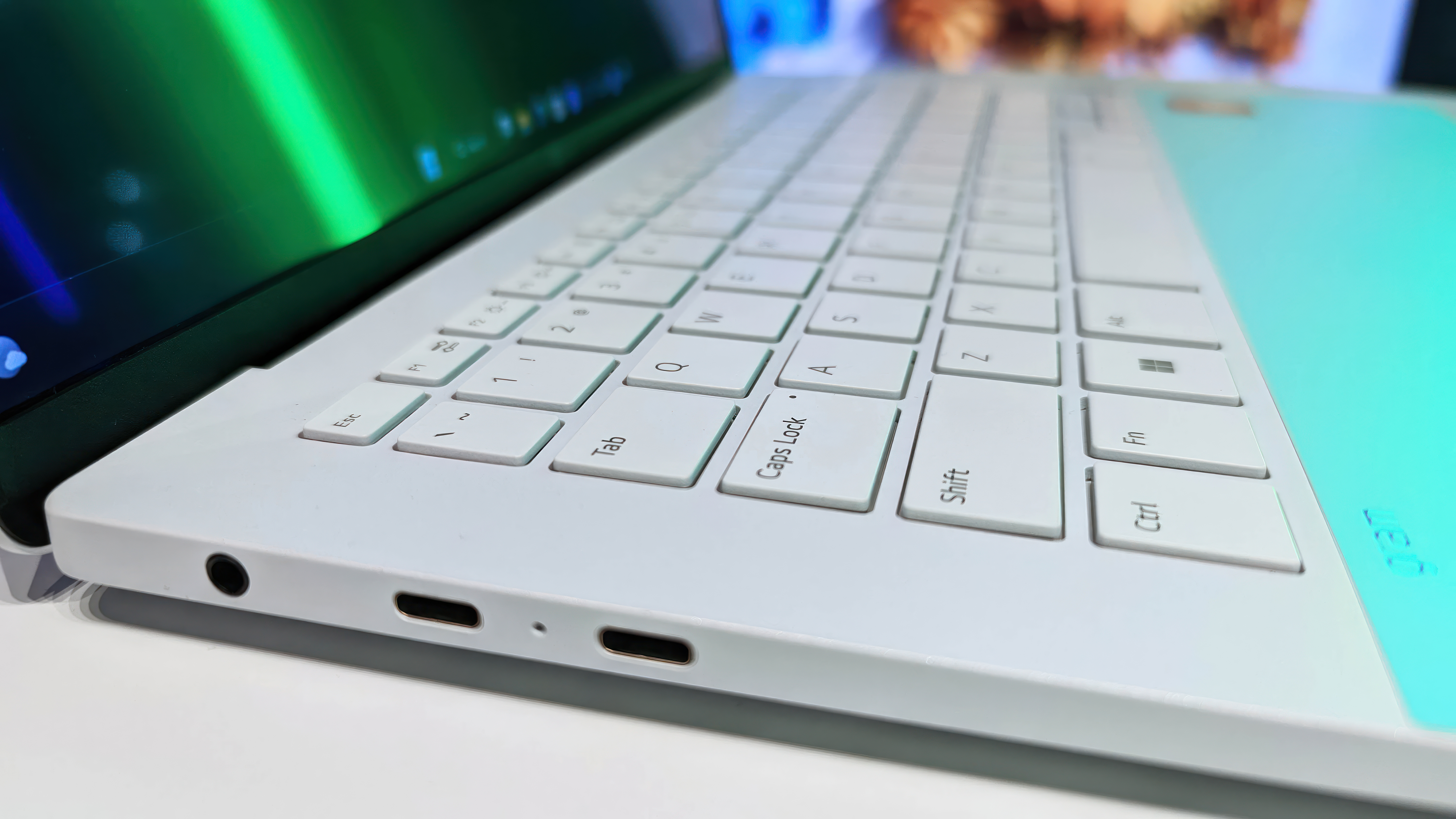
Oh, and the rest of the Gram Style is also quite fantastic. Weighing just 2.7lbs at 16-inches (!) and packing a 3200 x 2000 OLED display with a 120Hz refresh, a new 13th Gen Raptor Lake Intel Core i7 P-series processor, and Gen4 NVMe SSD, these laptops will be powerful as well as stylish.
Also, LG's use of iridescent for the lid and deck of its new Gram Style?
pic.twitter.com/NyZBhSN2H1January 6, 2023
No word on pricing for the LG Gram Style, but it could push into the $2,000 mark. We’ll see if it makes our best laptop list going into 2023, but it already won an award for Best of CES 20023 for innovation in design.
Your move, Dell.

Daniel Rubino is the Editor-in-chief of Windows Central. He is also the head reviewer, podcast co-host, and analyst. He has been covering Microsoft since 2007 when this site was called WMExperts (and later Windows Phone Central). His interests include Windows, laptops, next-gen computing, and wearable tech. He has reviewed laptops for over 10 years and is particularly fond of 2-in-1 convertibles, Arm64 processors, new form factors, and thin-and-light PCs. Before all this tech stuff, he worked on a Ph.D. in linguistics, performed polysomnographs in NYC, and was a motion-picture operator for 17 years.
